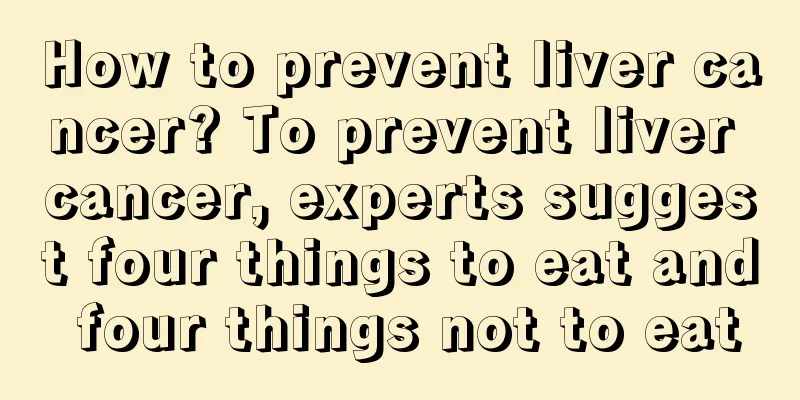Symptoms of gastrointestinal parasites

|
Everyone is afraid of parasites because there is no guarantee that parasites will not remain in the body. Some people are even afraid of parasites and dare not eat raw seafood or raw meat. In fact, whether there are parasites in the intestines can be judged by the symptoms. If there are parasites, it will often cause diarrhea in people, and the discharged gas will have an odor. There will also be symptoms of indigestion and frequent vomiting and nausea. Symptoms Different intestinal parasites can cause different symptoms: 1. Whipworms are common parasites in the human intestine. Mild infections usually have no obvious symptoms. When the infection is severe, patients may experience lower abdominal pain and tenderness, chronic diarrhea, and fresh or occult blood in the stool. Children with severe infection may develop rectal prolapse, anemia, malnutrition, and weight loss. 2. Amoebic dysentery is a common protozoan disease in the human intestine. Most of the infected people are asymptomatic carriers of the pathogen, but a few may have typical clinical symptoms, such as abdominal cramps and bloody and mucous stools, which may occur dozens of times a day. It may be accompanied by abdominal distension, weight loss, anemia, etc. Amebic dysentery may also be complicated by intestinal bleeding, intestinal perforation, and abscesses in the liver, lungs, brain, urogenital tract, and adjacent skin. 3. Giardiasis is a common protozoan disease in the human intestine. Most infected people are asymptomatic carriers of the pathogen. The typical symptoms of the acute phase are explosive watery diarrhea with a foul odor, often accompanied by abdominal distension, smelly farts and belching, nausea, anorexia, vomiting, fatigue, and cramps in the upper and middle abdomen. If not treated promptly, it will develop into a chronic disease, characterized by intermittent loose stools, yellow foamy stools, and a foul odor, with repeated attacks and the course of the disease can last for several years. Children may suffer from anemia and malnutrition due to diarrhea. When the worms parasitize the bile duct system, they can cause cholecystitis or cholangitis. 4. Ascariasis is a common parasitic disease in the human intestine. Patients may not experience any symptoms, but children, the weak or malnourished people are more likely to experience symptoms. Recurrent periumbilical pain is the most common symptom. Sometimes accompanied by loss of appetite, nausea, vomiting, diarrhea and constipation. Severe infection, especially in children, can often cause malnutrition, intellectual and developmental disorders. Sometimes, mental restlessness, irritability, teeth grinding, itching, convulsions, etc. may also occur. Some patients may experience allergic reactions, such as angioedema, intractable urticaria, etc. In addition to the above symptoms, it may sometimes cause serious complications, such as biliary ascariasis, intestinal obstruction, intestinal perforation and peritonitis. 5. Hookworm disease is a common and serious intestinal parasitic disease in humans. In the early stages of infection, there is an itchy and burning sensation at the infected site, followed by the appearance of small bleeding spots, papules or small blisters. It may disappear within a few days. Scratching may lead to secondary bacterial infection and local lymph node enlargement. 3 to 5 days after infection, patients often experience cough, itchy throat, hoarseness, etc. Severe cases have respiratory symptoms such as severe dry cough and asthma. Most of them last for a few days and disappear on their own, while the elderly can last up to 1 to 2 months. In the early stages of the disease, there are upper abdominal discomfort and dull pain. In the later stages, digestive system symptoms such as nausea, vomiting, abdominal pain and diarrhea, stubborn constipation or occult blood in the stool often occur due to anemia. Some patients like to eat raw rice, raw beans, even dirt, shredded paper, etc., which is usually called "pica". Anemia is the main symptom of hookworm disease. Patients with severe anemia have sallow skin and pale mucous membranes, and may also suffer from symptoms of heart failure such as dizziness, fatigue, palpitations, and edema. Severe cases in children may cause developmental disorders. |
<<: Symptoms of torn knee ligament
>>: What are the symptoms of kidney cold
Recommend
Will breast puncture biopsy cause the spread of breast cancer?
Breast biopsy does not cause breast cancer to spr...
What to eat for three meals a day for osteosarcoma
Osteosarcoma can cause serious harm to patients, ...
Is it better to soak your feet before or after taking a bath
Foot soaking is a very good health-preserving met...
Can malignant cervical cancer be cured?
Can cervical cancer be cured? Generally speaking,...
Do gray eyebrows look good?
Makeup is really important for women who love bea...
Causes and hazards of thick spleen
The normal size of a person's spleen is about...
What dietary issues should liver cancer patients pay attention to? Five dietary principles for liver cancer patients
Liver cancer is a disease that troubles many peop...
Scientific explanation of sleep paralysis
Many people may have encountered the phenomenon o...
Can sulfur soap be used to wash your face to remove acne?
Sulfur soap contains sulfur, which has a certain ...
What are the symptoms of early lung cancer? Beware of several early symptoms of lung cancer
Everyone is very familiar with lung cancer. It is...
What are the symptoms of advanced liver cancer? Five symptoms of advanced liver cancer
For patients with advanced liver cancer, their li...
What should I do if chewing gum is stuck on my shoes?
Chewing gum can help people remove bad breath in ...
How to remove oil stains
We always accidentally leave a lot of stains on o...
What medicine is better for moderate fatty liver and what should I pay attention to
Moderate fatty liver disease is very common in li...
How to cut ercai
Ercai is a very common vegetable. It tastes very ...









